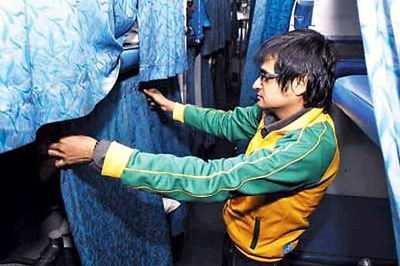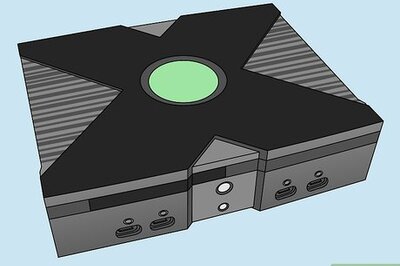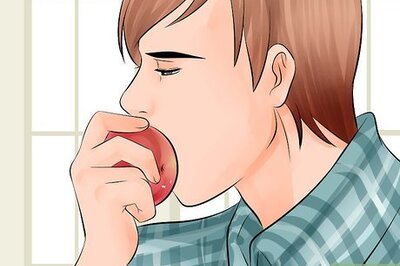
views
Boeing’s new Starliner astronaut capsule was launched from Florida on Wednesday in a first test flight carrying a crew, after several delays caused by last-minute technical problems.
The CST-100 Starliner, with two astronauts aboard, lifted off from the Cape Canaveral Space Force Station in Florida, strapped to an Atlas V rocket furnished and flown by the Boeing-Lockheed Martin joint venture United Launch Alliance (ULA).
The inaugural crew for the seven-seat Starliner includes two veteran NASA astronauts – Barry “Butch” Wilmore, a retired U.S. Navy captain and fighter pilot, and Sunita “Suni” Williams, a former Navy helicopter test pilot with experience in flying more than 30 different aircraft.
Here’s a rundown of key events in Starliner’s journey to space over the past few years:
Sept. 4, 2015 – Boeing takes the wraps off an assembly plant for its first line of commercial spaceships, which NASA plans to use to fly crews to the ISS.
Nov. 4, 2019 – Boeing says one of three parachutes failed to open during a crucial unmanned test of the Starliner.
Dec. 20, 2019 – Boeing successfully launches its new astronaut capsule on an uncrewed debut journey to the ISS.
Dec. 22, 2019 – The spacecraft makes a “bullseye” landing in the New Mexico desert.
Jan. 7, 2020 – NASA and Boeing investigate a software glitch that prevented the unmanned capsule from reaching the ISS in its Dec. 2019 flight.
Feb. 6, 2020 – The NASA review panel says Boeing narrowly missed a “catastrophic failure” during its December flight test.
Aug. 25, 2020 – The first Starliner crewed mission is tentatively slated for 2021, with Boeing aiming to complete software and test hardware production development.
Oct. 7, 2020 – The chief astronaut for Starliner’s crewed flight to the ISS, Chris Ferguson, steps down from the job, citing family priorities. He is replaced by Wilmore.
July 29, 2021 – A space station mishap prompts NASA to postpone the launch of the Starliner.
Aug. 3, 2021 – Boeing postpones Starliner launch after new glitch.
Aug. 13, 2021 – Boeing returns the spacecraft to the factory to resolve a valve issue, delaying the launch date until at least mid-October if not later.
May 19, 2022 – The Starliner capsule launches on a do-over uncrewed test flight bound for the ISS.
May 20, 2022 – The Starliner capsule, without astronauts onboard, docked for the first time with the ISS.
Aug 25, 2022 – Boeing announces it is targeting early 2023 for the first Starliner mission carrying astronauts.
June 1, 2023 – Boeing says it is standing down from late preparations for its first crewed Starliner test flight to space, which was planned for July 2023, after it discovered two safety-critical issues with the spacecraft.
May 3, 2024 – Boeing poised to send the first Starliner space capsule with a crew of humans into orbit the following week, after a year’s delay.
May 6, 2024 – The first crewed test flight of the new Starliner space capsule was postponed after the planned May 6 launch countdown was halted over a fault with the Atlas V rocket.
May 7, 2024 – NASA says new targeted launch date for the mission was set to May 17 at the earliest.
May 14, 2024 – Boeing says the Starliner mission had been delayed again – until at least May 21 – over an issue with the spacecraft’s propulsion system.
May 17, 2024 – NASA and Boeing delayed the launch of the Starliner crew capsule again to check helium leak, targeting May 25.
May 21, 2024 – NASA again delayed the debut crew flight to spend more time evaluating the helium leak in the spacecraft’s propulsion system.
May 22, 2024 – NASA and Boeing target June 1 for the launch.
June 1, 2024 – A second attempt at launching the Starliner with astronauts on board was automatically halted with minutes to go before liftoff by a computer-abort system.
June 2, 2024 – Boeing and NASA target June 5 for the launch.
June 5, 2024 – The Starliner astronaut capsule was successfully launched from Florida with two astronauts aboard, with docking with the ISS scheduled for June 6.
Disclaimer: This post has been auto-published from an agency feed without any modifications to the text and has not been reviewed by an editor



















Comments
0 comment